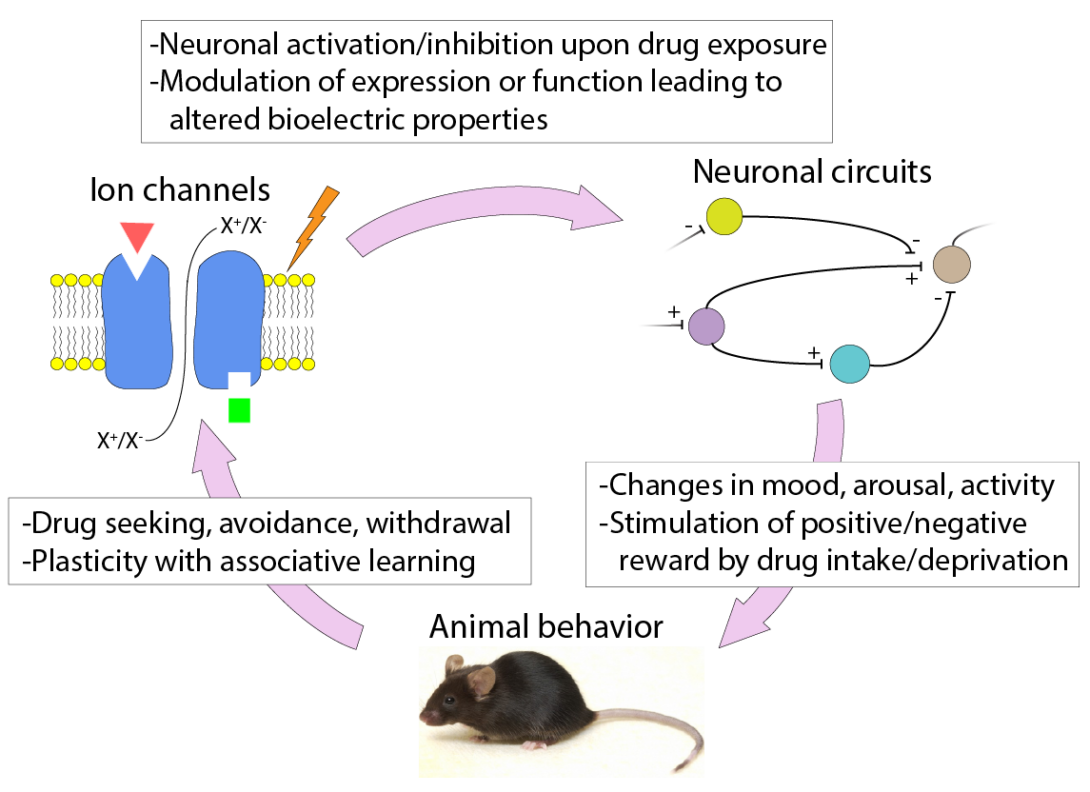Peters Lab
Overview Heading link

Our lab is interested in understanding how nicotine dependence, and the behaviors associated with nicotine abuse, stem from and underlie the misregulation of expression and function of neuronal ion channels.
Nicotine’s effects on nAChR-containing neurons
Ion channels are transmembrane proteins found in all excitable cells that undergo conformational changes in response to their respective stimuli, causing temporary changes to membrane excitability to generate, modify or inhibit intra- or intercellular signaling events. Nicotine is a potent agonist of the nicotinic acetylcholine receptors (nAChR), a family of ligand-gated ion channels that are widely distributed in the brain and which contribute to an extensive array of brain functions.
Acute exposure of nAChR-containing neurons to nicotine produces rapid effects on activity in those neurons, while chronic exposure causes long-term changes to channel expression and activity which lead to the development of addiction and dependence.
Lab focus and goals
Our lab aims to probe the mechanisms by which the properties of nAChR and their interacting or downstream proteins regulate function of the neurons and neuronal circuitry underlying nicotine seeking, avoidance and withdrawal behaviors, and to understand how these cells and circuits are affected by nicotine exposure.
By taking an integrative approach employing techniques from the molecular to the behavioral level using cell and rodent models, we hope to develop an improved understanding of the complex basis of nicotine dependence, and to inform therapeutic strategies to combat it in humans.
